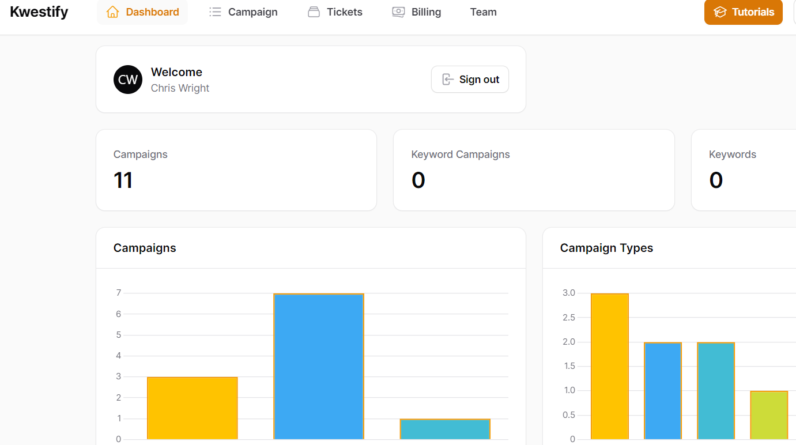
Affiliate marketing is a popular and lucrative avenue for individuals looking to earn passive income online, but it’s important to navigate this realm with a careful understanding of the legal landscape. As you embark on your affiliate marketing journey, there are crucial legal considerations that you must be aware of. From complying with consumer protection laws to understanding the intricacies of disclosure requirements, this article will provide you with a comprehensive overview of the legal considerations that should guide your affiliate marketing practices. Affiliate marketing is a great way to monetize your website, blog, or social media platform by promoting products or services and earning a commission for any sales generated through your unique affiliate link. However, it’s important to understand the legal considerations involved in this type of marketing to ensure compliance with the law and protect yourself from any legal issues or liability. In this article, we will explore the most significant legal considerations in affiliate marketing and provide you with a comprehensive guide to navigate the legal landscape.
FTC Disclosure Guidelines
When engaging in affiliate marketing, one of the most crucial legal considerations is complying with the Federal Trade Commission (FTC) guidelines. The FTC requires affiliates to disclose their relationship with the advertiser clearly. It means that you must disclose that you will earn a commission if someone makes a purchase through your affiliate link.
To comply with the FTC guidelines, you should make the disclosure in a noticeable and transparent manner. It is recommended to place the disclosure near the affiliate link or on the same page where you promote the product or service. The disclosure should be easily understandable for the audience, using clear and unambiguous language. By adhering to the FTC disclosure guidelines, you can maintain transparency and build trust with your audience while avoiding any potential legal consequences.
Affiliate Agreement
An affiliate agreement is a legally binding contract between you, as the affiliate marketer, and the advertiser or merchant with whom you are partnering. The agreement outlines the terms and conditions of your affiliate relationship, including commission rates, payment terms, prohibited activities, and termination clauses. It is essential to carefully review and understand the terms of the affiliate agreement before entering into any affiliate marketing partnership.
To protect your interests, make sure the agreement clearly defines the commission structure, payment schedule, and any restrictions on activities such as keyword bidding, email marketing, or direct linking. Ensure that there are provisions for termination or suspension of the agreement if either party fails to comply with the agreed-upon terms. By having a well-defined and comprehensive affiliate agreement in place, you can minimize legal risks and establish a mutually beneficial relationship with the advertiser.
Intellectual Property Rights
When engaging in affiliate marketing, it’s crucial to respect intellectual property rights such as trademarks, copyrights, and patents. You must have explicit permission to use any copyrighted material or trademarks belonging to the advertiser or merchant. Unauthorized use of intellectual property can lead to legal consequences, including cease-and-desist letters, fines, or even lawsuits.
Always ensure that the content you create, including product reviews, videos, graphics, or text, is original and does not infringe upon any intellectual property rights. If you want to use any copyrighted material, seek permission from the authorized owner or use it within the bounds of fair use. By respecting intellectual property rights, you can maintain a positive reputation and avoid legal disputes.
Advertising Laws
Affiliate marketers must also comply with various advertising laws and regulations to ensure that their marketing activities are fair, honest, and transparent. Advertising laws may include requirements related to false or misleading claims, disclosures, endorsements, comparative advertising, and unfair competition.
To comply with these laws, it’s important to accurately represent the products or services you are promoting and refrain from making false or unsubstantiated claims. If you provide endorsements or testimonials, ensure that they accurately reflect the honest opinions or experiences of the endorsers. Make necessary disclosures as required by the FTC guidelines, and avoid engaging in unfair competition practices such as unauthorized use of competitors’ trademarks or misleading comparisons.
Privacy Policies
Privacy concerns have become increasingly important, and it’s crucial for affiliate marketers to address these considerations. You should have a clear and transparent privacy policy that outlines how you collect, use, and protect user data. Disclose whether you share user data with third parties, how you use cookies or tracking technologies, and provide an opt-out option for users who do not wish to have their information collected or used for marketing purposes.
Ensure that you comply with applicable data protection laws, such as the General Data Protection Regulation (GDPR) in the European Union or the California Consumer Privacy Act (CCPA) in the United States. By being transparent about your data practices and respecting user privacy, you can maintain trust with your audience and comply with legal requirements.
Data Protection
In addition to privacy policies, affiliate marketers must also consider data protection measures to safeguard user data from unauthorized access, data breaches, or misuse. Implement security measures such as encryption, password protection, and secure storage practices to prevent unauthorized access to user data.
Ensure that you are aware of any data protection regulations applicable to your jurisdiction and the jurisdictions of the users you are targeting. Take necessary steps to comply with these regulations, including data transfer restrictions, data breach notification requirements, and maintaining appropriate data protection and security standards.
Competitor Trademark Infringement
When engaging in affiliate marketing, it’s essential to be mindful of potential trademark infringement issues. You should avoid using competitor trademarks in a way that may create confusion or mislead consumers. Unauthorized use of trademarks can lead to legal consequences, including claims of trademark infringement or dilution.
Do thorough research to ensure that the content you create or the keywords you target do not infringe upon any competitor trademarks. Avoid using trademarks in your domain names, meta tags, or ad copy. By respecting the intellectual property rights of your competitors, you can avoid legal disputes and maintain a professional reputation.
Endorsement Guidelines
In affiliate marketing, endorsements play a significant role in influencing consumer behavior. However, it’s important to follow endorsement guidelines to ensure transparency and prevent deceptive practices. If you provide endorsements or testimonials, disclose any material connections or incentives you have with the advertiser.
Ensure that any claims made in your endorsements are substantiated and truthful. Avoid making exaggerated or false claims that may mislead consumers. By following endorsement guidelines, you can maintain your credibility and avoid legal repercussions.
Cross-Border Legal Issues
If you engage in international affiliate marketing, it’s essential to consider cross-border legal issues. Different countries may have varying laws and regulations related to advertising, marketing, data protection, privacy, and taxation. It’s important to familiarize yourself with the legal requirements of the countries you operate in or target through your marketing activities.
Consult with legal professionals or experts who are knowledgeable in international laws to ensure compliance with applicable regulations. Consider cultural differences, language requirements, and any potential legal restrictions that may impact your marketing activities in different jurisdictions.
Compliance with International Laws
Affiliate marketers must also ensure compliance with international laws and regulations. International laws may include consumer protection laws, anti-spam laws, anti-money laundering laws, and sanctions regulations. It’s important to familiarize yourself with these laws and take necessary steps to adhere to them.
Consult legal professionals or experts who specialize in international laws to ensure compliance with the legal requirements of the countries you operate in or target. Establish internal policies and procedures that align with international legal standards to manage and mitigate legal risks effectively.
In conclusion, affiliate marketing offers immense opportunities for earning revenue, but it’s crucial to navigate the legal considerations for a successful and compliant affiliate marketing business. Complying with FTC guidelines, having a comprehensive affiliate agreement, respecting intellectual property rights, adhering to advertising laws, implementing privacy policies and data protection measures, avoiding trademark infringement, following endorsement guidelines, understanding cross-border legal issues, and ensuring compliance with international laws are key aspects to focus on. By understanding and adhering to these legal considerations, you can safeguard your business, maintain trust with your audience, and achieve long-term success in the affiliate marketing industry.






